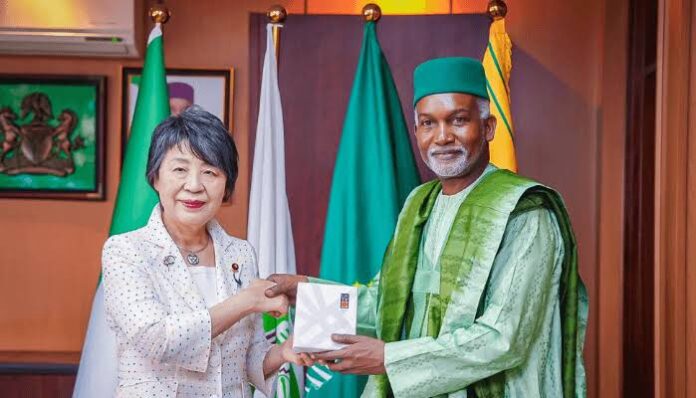Japan has shown increased interest in investing in Africa’s tech ecosystem, particularly in Nigeria, through its Tokyo International Conference on African Development (TICAD) initiative. This intention was highlighted when Japan’s Minister for Foreign Affairs, Yoko Kamikawa, met with Nigeria’s Minister for Foreign Affairs, Yusuf Tuggar, at the TICAD ministerial meeting. Their discussion centered around strengthening business and economic ties between the two countries, with a focus on tech startups.

TICAD is an international conference focused on Africa’s development, and Nigeria, with a population of over 200 million, has one of the most vibrant tech ecosystems on the continent. Over the last five years, the Nigerian tech industry has attracted over $4.4 billion in investment, driven largely by the country’s tech-savvy population and its market potential.
However, recent data indicates a slowdown in funding. In the first quarter of 2024, tech funding in Nigeria dropped by over 45%, with only $466 million raised. This marks a 9% drop from the previous quarter and a 47% decline from the same period in 2023. Despite this funding decline, Japan’s interest could be a positive development for Nigerian startups.
Japan has been investing in Africa for some time. In 2022, it invested $726 million through venture capital firms, such as Verod Kepple. Japan’s investment strategy in Nigeria has typically focused on providing patient capital through corporate venture capital (CVC). This means they aim to take a long-term approach, supporting businesses over time rather than expecting quick returns.
Japan itself has a thriving startup ecosystem, with over 10,000 startups. In the last decade, investments in Japanese startups have grown significantly, reaching $6 billion in 2023. The country also boasts nine unicorn startups—companies valued at over $1 billion. Experts believe that Japan’s increased involvement in Nigeria could benefit local startups by providing not only funding but also access to Japanese expertise.
Adedeji Olowe, founder of Lendsqr, emphasized that funding from Japan will help Nigerian founders grow. He added that even without investment, many Nigerian founders have thrived, so additional funding could be a game-changer. Beyond money, Olowe believes Japanese investors could connect Nigerian startups with foreign expertise, which could significantly boost their chances of success.
However, Olowe pointed out a potential challenge. While Nigerian startups tend to focus on software and SaaS (Software as a Service) models, Japan is a country known for its hardware innovations. This difference in focus might limit the effectiveness of Japanese investments in Nigeria’s software-heavy ecosystem. Japan’s strength lies in premium, high-end hardware, which differs from the mass-market hardware often produced in China.
David Adeleke, founder of Zeeh Africa, noted that Japanese investors are approaching the Nigerian market with caution. He explained that Japan is learning from the mistakes Western investors made when they rushed into the African tech ecosystem without thorough research. Japanese investors are now conducting proper due diligence to avoid those pitfalls, carefully assessing startups before investing.
Davidson Oturu, managing partner at Nubia Capital, also shared his thoughts on Japan’s interest in Nigeria. He believes that while Japan’s involvement may not reverse the funding decline in Africa, it will introduce new capital into the market. This could attract more investors and reduce Nigerian startups’ reliance on traditional funding sources.
Adeleke further highlighted the importance of the Nigerian government in protecting local interests. He warned that the government should ensure foreign investments do not undermine the value of local assets or harm Nigerian businesses. Policies should be put in place to ensure that foreign investors can profit while still protecting the interests of Nigerian founders and citizens. Rwanda, for example, has transparent policies that protect its citizens while attracting foreign investments.
Japan’s growing interest in Nigeria’s tech ecosystem presents an opportunity for local startups to access new funding and expertise. While there are potential challenges due to differences in focus between the two countries, Japan’s cautious and well-researched approach could lead to meaningful partnerships and growth for Nigeria’s tech scene.




